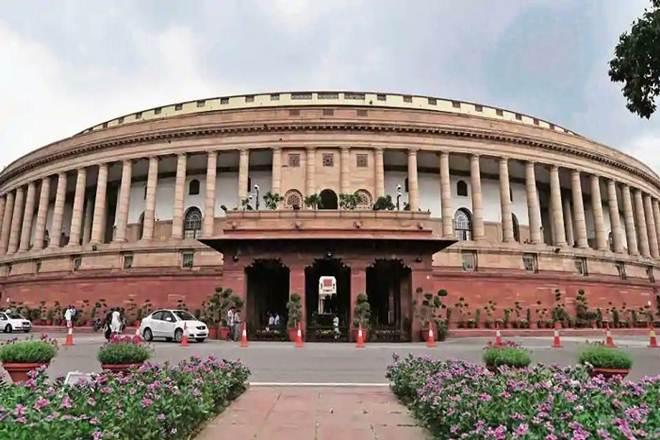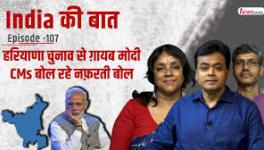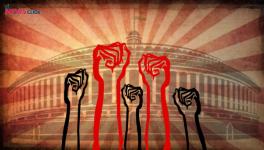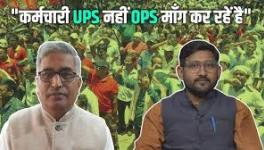Need Unity of Resistance to Stop Democracy’s Free-Fall

Representational Image. Image Courtesy: The Financial Express
I have little doubt that we are witnessing a doomsday scenario for Indian democracy. We are not prepared to accept it, because we have been long accustomed to liberal democracy in spite of several hiccups and it is not easy to leave our comfort zone.
Back in the late eighties of the last century, at the invitation of an IIAS, Shimla director, I delivered a lecture on ‘Crisis of the Indian State’. It was attended, among others, by formidable leftist scholars such as Randhir Singh and Jayati Ghosh. While Prof Ghosh murmured her disappointment, Randhir Singh vocally complained that my lecture has not laid down a theory and hence had no leg to stand on.
But I was more keen on presenting symptoms of decay that exposed the unmistakable lapses and lacunae of our kind of democracy while scholars wanted a theory based on an idea of the state. On the whole, it was dismissed as a futile exercise. I was dismayed that while seasoned and respected scholars were keen to pick holes in an admittedly amateurish attempt, they did not even care to consider the evidence I laid before them.
My argument was based on tell-tale evidence of a breakdown of the class-consensus at the base of our Constitution that had originally aimed at founding a broad-based and vibrant democracy. The lack of a sense of direction of the state that had begun to undervalue these foundations, the loss of labour militancy and complacency of the vanguard of the working-class and the stagnation in farming and industry. Those symptoms were aggravated by first, a semi-conscious disengagement of important arms of the state like the police and the bureaucracy from the once-inspiring values in our Constitution. Second, by the grossly casual way in which the governments of the time were tinkering with key democratic institutions and pushing the frontiers of legitimacy on various fronts.
The use of street power to stifle dissent also became more and more familiar, though not as widespread as today. It has got to be remembered that at the time Safdar Hashmi was murdered it was widely believed that it was the work of Youth Congress goons. It is not my contention that Congress had led the dead march towards fascism. Other parties had been also guilty of supreme unconcern and contemptuous passivity. It has been a slow and steady retreat from the vibrant democracy that had held the nation together.
Some two years later, I repeatedly drew the attention of academic friends in Delhi that we were likely to see democracy free-fall into fascism, and was once again deprecated or pitied for raising a false alarm. Authoritarianism, yes. But no fascism, as it allegedly could not survive in the salubrious Indian climate. On hindsight it becomes clear that during those doldrum years saffron elements systematically infiltrated the bureaucracy, the police and even the army and the judiciary.
The trend gathered strength during the suave and amiable patronage of Vajpayee. For the first time there was a radical shift in foreign policy. Conservative elements in society got drawn towards the sanitised presentation of saffron ideology. Not so long ago, when the student Najeeb disappeared from the campus of Jawaharlal Nehru University, I wrote in an Assamese newspaper that it portends the beginning of a systematic attack on JNU to destroy it.
A few years after the ill-fated lecture at Shimla, Advani rolled out his rath yatra, leaving violence and slaughter in its wake. The Babri masjid was demolished. The Supreme Court was defied by both the Centre and the state, by looking passively on while the sacrilege was on. Secularism was challenged on its home turf. The Constitution was falling apart.
I do not pretend to be a sooth-sayer, nor am I setting myself up as an oracle. My only claim is that a more alert and perceptive analysis of social and political trends which may endanger our democracy are needed to save it. In fact, we had fallen for academic pyrotechnics and remained blind to long-standing and far-reaching trends vital to the healthy survival and progress of our nation. Today, fascism is stalking the land. Liberal universities have come under a furious attack from forces that seek to replace reason and understanding as the cement of our common life with blind communal passion.
The above remarks might give the impression that I am pleading for a hopeless surrender to the overwhelming power of the enemy. I am engaged here in my modest way in fighting it along with conscious people and I value resistance; resistance with the clear aim of victory. But there must be clear-eyed purpose and unity of all such forces as are intent on defeating fascism.
While people are awakening in a massive country-wide upsurge it is still not broad enough or strong enough. Some parts of the country, Odisha for example, are untouched. Elsewhere, fascism has found unlikely allies and hopes to use them as shields against the upsurge. There should be no doubt that such governments in states may do the centre’s bidding when it comes to the crunch. Short-term electoral compulsions and calculations have already opened rifts in the Opposition.
The brutal nature of the state and the power it wields in deliberate detachment from public consensus, the unprecedented savagery of the police which have succumbed to that power, the apparent and depressing preoccupation of the judiciary with legal niceties at the expense of constitutional principles, the timidity of the press, the proliferation of bullying outfits dominating streets; all conjure a picture of a fascist force armed with tooth and claw. It is fully prepared for a fight to the finish.
The only silver lining is the spontaneous popular revolt by the youth and students that heroically defy the might of a state aided by fascist black-shirts. This has put hope in the hearts of a dispersed Opposition. But it also holds back and hopes to find a less dangerous method of overcoming the threat.
Fascists understand the situation and the state-sponsored attack on rebellious students and faculty of JNU in the name of law and order, and the farcical response of the police and the Home department are indications of even more deadly methods to come of containing the outburst of popular frustration and indignation.
It is high time that the organised Opposition gets their act together in the shortest possible time, lays aside differences and joins and strengthens the movement to protect the rights and liberties of the people. They must use both electoral methods and organised mass resistance to defeat the enemy and weaken its support-bases through a sustained struggle. The costs may be high. But the prize invaluable.
The writer is a literary critic and commentator on socio-political issues. The views are personal.
Get the latest reports & analysis with people's perspective on Protests, movements & deep analytical videos, discussions of the current affairs in your Telegram app. Subscribe to NewsClick's Telegram channel & get Real-Time updates on stories, as they get published on our website.
























